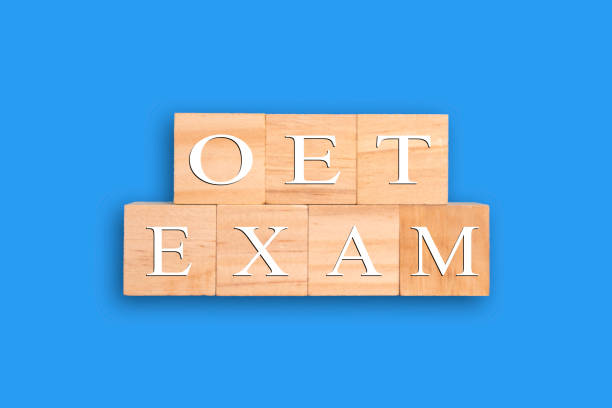How to crack OET at the 1st attempt?

We would like to enlighten you on a few easy steps on how to get B band in all the 4 MODULES in OET at the 1st attempt. It is very important for you to acquaint with the test format, including the structure of each subtest (module) and the assessment criteria of OET. Learnig the marking criteria is of great importance because you have to perform well, realising the subtle aspects of this international exam of English exclusively for healthcare professionals. Determine your current English proficiency level. You may need to take a practice test to gauge your strengths and weaknesses. Invest in quality OET study materials and practice tests so that on the day of the exam you will be familiarised with the test and thereby you can avoid exam stress. Creating a study plan that allocates sufficient time for each subtest would be of great help. Consistent daily practice is essential. You should be well-versed with your language skills such as sentence structure, grammatical accuracy, the agreement of subject and verb, spelling and punctuation. Work on improving your English language skills, focusing on areas where you need the most improvement. This includes grammar, vocabulary, and pronunciation. Regularly practise sample OET questions and exercises. Practise on simulate (exam type) test conditions as closely as possible, including time limits. If possible, get feedback on your speaking and writing from a qualified OET tutor or language expert. Learn effective time management during the test is of vital importance. Allocate a specific amount of time for each task, and practise completing tasks within these time limits. Test Strategies: Familiarize yourself with test-taking strategies, such as skimming and scanning for reading, note-taking for listening, and structuring your writing and speaking responses. How to be cool and calm us a quality to be attained. On the test day, stay calm and focused. Manage your time wisely during the exam and make sure to review your work if time allows. Improving your Communication Skills is also of great importance: For the speaking subtest, practise effective communication and role-play scenarios relevant to your profession. Keep up to date with any changes or updates to the OET, as the test may evolve over time. Remember that success on the OET often comes with consistent effort and preparation. Good luck with your OET exam! You can do it, provided you allocate enough for this life changing English exam.
How to Write a Discharge Letter in OET Medicine: A Step-by-Step Guide?

In the field of medicine, effective communication is paramount. As a healthcare professional, one of the essential skills you need to possess is the ability to write a comprehensive and coherent discharge letter. The Occupational English Test (OET) assesses the language proficiency of healthcare professionals, including their writing skills. Here is a look at a step-by-step guide on how to write a discharge letter in OET Medicine from the best OET Coaching Centre in Kerala to ensurethat you convey all the necessary information accurately. Step 1: Understand the Purpose and Audience Before you start writing, it is crucial to understand the purpose of a discharge letter. Typically, a discharge letter summarizes a patient’s medical history, treatment received, and future care plans. Your audience will consist of healthcare professionals who will be involved in the patient’s ongoing care. Keep in mind that the OET assesses your ability to communicate effectively with a range of healthcare professionals, so you should write with clarity and precision. Step 2: Gather Relevant Information To write a comprehensive discharge letter, gather all the relevant information. This includes the patient’s personal details, medical history, diagnosis, treatment provided, medications prescribed, and any follow-up instructions. Make sure you have all the necessary medical records, test results, and consultation notes to refer to while writing. Step 3: Structure Your Letter A well-structured letter is easier to read and understand. Start with a formal salutation, such as “Dear Dr. [Recipient’s Last Name].” Then, introduce the patient’s name, age, and admission dates. In the main body, provide a summary of the patient’s medical history, including the reason for admission, diagnosis, and treatment received. Use clear and concise language, avoiding jargon or complex medical terms that may confuse the reader. Step 4: Include Relevant Details In the body of your letter, include all relevant details about the patient’s treatment. Describe the procedures performed, medications administered, and any significant observations made during the hospital stay. Mention any complications encountered and how they were managed. If necessary, provide recommendations for further investigations or referrals to other specialists. Step 5: Outline Follow-up Care It is essential to outline the patient’s future care plans in your discharge letter. Specify any medications to be continued or discontinued, along with the dosage instructions. If there are any lifestyle modifications or dietary restrictions, mention them clearly. If the patient requires any further appointments or tests, provide the necessary details, such as dates, times, and locations. Step 6: Proofread and Edit Once you have written the discharge letter, take the time to proofread and edit it. Check for any grammatical or spelling errors and ensure that your sentences are well-structured and coherent. Pay attention to punctuation and formatting. It is advisable to read the letter aloud to identify any awkward phrasing or unclear passages. If possible, ask a colleague or mentor to review your letter for feedback. Step 7: Maintain Confidentiality Confidentiality is of utmost importance in healthcare. Ensure that you maintain patient confidentiality throughout your discharge letter. Avoid using the patient’s full name or any other identifying information unless absolutely necessary. Use generic terms or initials instead to protect the patient’s privacy. Final Thoughts: Writing a discharge letter in OET Medicine requires careful attention to detail and effective communication skills. By following these step-by-step guidelines, you can create a well-structured and comprehensive letter that conveys all the necessary information to the recipient. Remember to practice regularly to improve your writing skills, and seek feedback from experienced professionals to enhance your performance in the OET.
WHY A HIGH BAND IN IELTS, OET & PTE ARE VERY IMPORTANT

All job aspirants who aspire to go to progressive nations to study, work, or to migrate should aim for a high score in these mandatory Global English exams. Of course, YouTube channel players occasionally celebrate breaking news just for their financial gains: NO IELTS REQUIRED ONLY 5.5 BAND IS ENOUGH CBSE/ICSE CERTIFICATES ARE ENOUGH. All these are only partial truths. I have been teaching all these exams for 26 years and have been dealing with many consultancies that facilitate students and migrants in reaching their dream destinations. On many occasions in the past, I could read this baseless news and experienced that only when students get a high band can succeed in getting admission to the college of their preference and succeed in getting a visa to these rich nations. As such, I earnestly request you to separate the wheat from the chaff and learn the truth. Consult sensible experts who are in this field at least for a few years and then you take your own decisions. Now we have a good number of candidates from abroad taking online training from us on IELTS, OET, PTE & TOEFL. Please note that there are only very few training centres in these developed nations and they charge huge sums of money for training candidates for a few hours on certain days. Their priority is not your success but what they get in financial terms. Media in general, social media in particular, seem to be not taking any responsibility if anything goes wrong in your life when you reach abroad because of their baseless news. Unfortunately, amid the explosion of information and when the truth is available at your fingertip, please find the truth from any official website and consultancies with some credibility. Taking these exams before you fly from here would be better because : 1. A high band in these exams will help you get your visa easily. 2. A good score will help you get admission to prestigious institutions. 3. Once you complete your education, of all your certificates the most valuable one will be your IELTS or an equal certificate in global exams. 4. During the time of getting a rewarding part-time job or when attempting for promotion your high band will have a great impact in molding your future.
